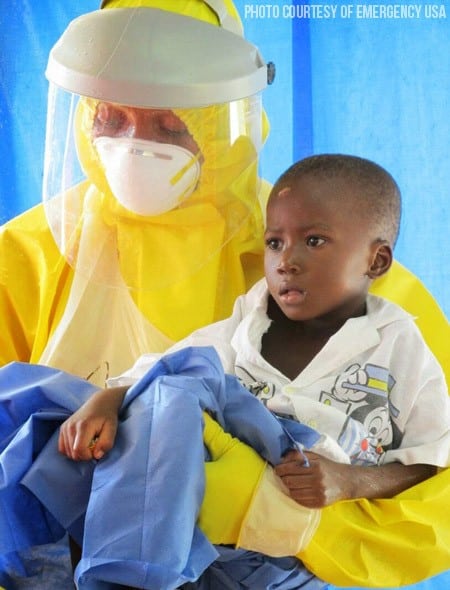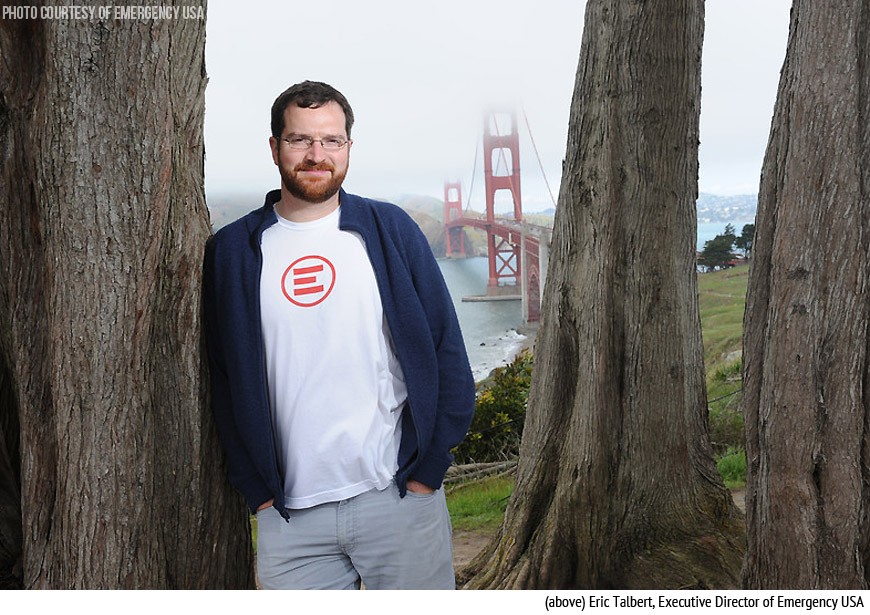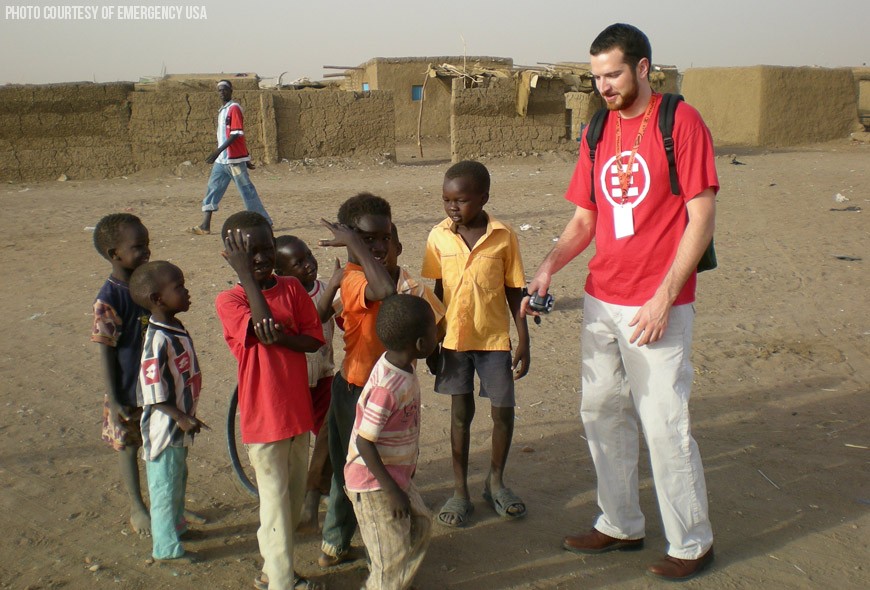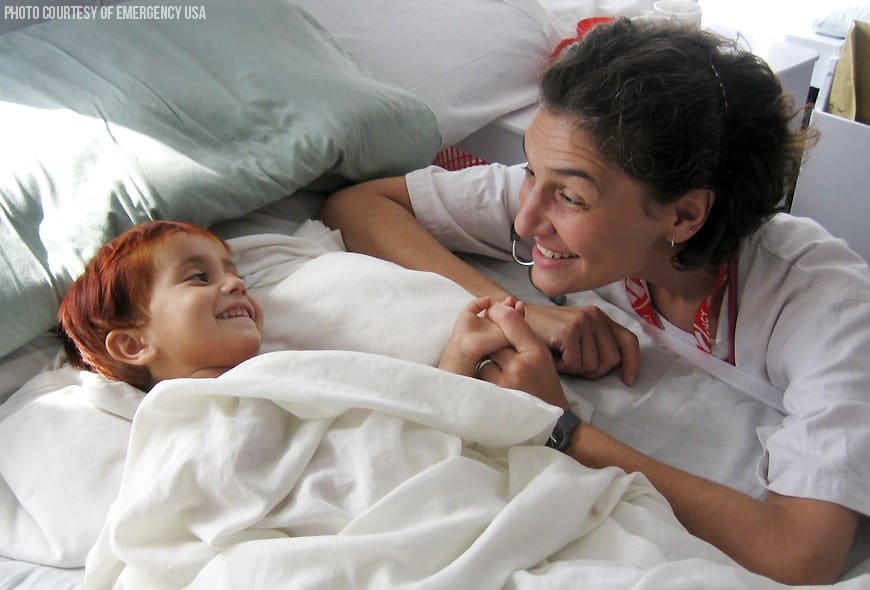With such difficult and violent issues plaguing the planet (ISIS, Ebola, terrorism, civil war), there is a big need for medical organizations dedicated to people in need of urgent care. Emergency USA is stepping up to the plate and providing free-of-charge surgical, maternity, and healthcare clinics in disease ridden and war-torn countries across the world.
What Emergency USA Does
After hundreds of thousands of civilian deaths, and even more injuries in wartime, Emergency USA has dedicated its time to ensuring that people around the world have proper medical care. Since its formation in 1994, the organization has treated an estimated 6 million patients.
One of the most important criteria for providing this life-saving work is that there is no cost to the patients. With a lack of money and physicians available for people in countries like Afghanistan, Sierra Leon, and even Iraq, there just aren’t many options for healthcare. But even with the immense toll taken on civilian populations, Emergency has done more than its fair share to establish itself as an integral health organization.
There are currently 58 clinics and hospitals spread out amongst 16 countries built by Emergency hands. The vast majority of those facilities are located in Afghanistan, servicing 40 health clinics, three surgical centers, and one maternity center.
Taking Action and Advancing the Cause
After coming to the realization that current wars hurt more civilians than actual combatants, especially after the effects of September 11, 2001, Eric Talbert, now the Executive Director for Emergency USA, knew he needed to find a way to help.
“It starts with the aftermath of 9/11, knowing that so many civilians had passed away and that many more would likely be killed or injured,” Talbert tells MiLLENNiAL. And after hearing how people were being hurt by the war on terror in the Middle East, it drove his mission even more.
“There were already plenty of landmines and children injured in Afghanistan,” Talbert adds. “They would pick them up because they would be looking for scrap metal or toys. Those stories are the ones that particularly motivated me to start helping these people. When I learned about this in my early 20’s, it really motivated me to start helping this huge need.”
The Millennial Desire
After realizing his own desire to help injured civilians, Talbert noticed other millennials wanting to help make a difference in people’s lives, too. “At that time my worldview expanded and I became really interested in what was going on in the world,” Talbert tells us. “I had come to believe that we are much closer connected than we think.”
With more of the millennial generation volunteering than ever before, Emergency USA is the perfect place to start life-changing work; especially for people already involved in the medical industry. Professionals with training in medicine, especially pediatricians and specialized surgeons, are massive assets to the countries that are still only serviced by rudimentary care.
The ultimate vision for Emergency’s clinics, according to Talbert, is to provide the same quality care that “we feel comfortable bringing our own families to.” For a generation so versed in connection, millennials are perfect candidates for providing not only quality healthcare, but also necessary training for local people in order to keep their own clinics sustained when the volunteers eventually leave the area.
Not only is the generation being recruited in the United States, but they are also a key component to the local communities that are being trained to help sustain their own healthcare clinics. Healthcare has already become the most lucrative work environment for the millennial generation, and is one of the most popular destinations for millennial job seekers.
This particular surge towards the healthcare industry has given Emergency USA a steady stream of volunteers that are ready to both teach and provide quality care.
The Current Situations
Right now, there are 10 or more ongoing conflicts that are tallying at least 1,000 deaths per year across the globe. This does not even include the Ebola crisis that still remains a large threat to African life.
With the rise of ISIS activity throughout the Middle East, mainstream media outlets have turned their attention away from the Ebola crisis, which remains a serious threat.

“It’s far from over, despite it being off of the global news cycle,” Talbert explains. “It’s incredibly dangerous because people become relaxed about the situation. We are still seeing new cases of Ebola every day right now.”
In order for an area to be declared “Ebola free” there must be a period of 42 consecutive days without a new case of the disease presenting itself. And with the incubation period, the timeframe can become quite long.
At the current rate of new Ebola cases, there is still an estimated two or three months before the world doesn’t see a new Ebola case arise. “We still want to build a robust healthcare system in that region because the healthcare systems that are needed, are still not completely in place,” Talbert adds.
What Emergency Needs
As an organization that survives on its volunteer base, Emergency is always in need of capable physicians who can not only provide care, but can also teach locals the necessary steps for treating diverse patients.
When a person signs on to help with the organization, there is a six-month time frame of required work in any given region. However, many of the volunteers remain much longer than the required time in order to continue serving the community.
These workers bring incredible value to Emergency USA because they have immersed themselves in the culture and the language of their particular region, giving them a unique ability to provide specialized care and training.
“The future depends on ambitious youth that are dedicated to global health, and particularly surgery,” Talbert mentions. “Personnel is still our biggest need.”
The organization’s main goal is to turn over their medical facilities to the locals and feel confident they can sustain operations in times of crisis. “The ultimate vision is to build these hospitals from scratch and then in turn, turn over these places to their own communities,” Talbert comments. “We have been able to do that in Cambodia and we are close to places like that in Iraq as well.”
Not only is Emergency providing specialized care, it is taking people under its collective wings to provide education with hands-on training. “For us, it’s about local capacity and helping future generations gain access to healthcare. We don’t want these places to be co-dependent.”
As the organization grows, its ability to improve medical assistance will continue to flourish, especially with the strong millennial presence that is currently involved in the global healthcare industry.
There will always be a massive need for help across the globe as wars continue to escalate and conflicts remain. With a new generation getting involved in a critically important industry, millennials are in the perfect position to make a change that will last.
To learn more about or get involved with Emergency USA, visit their official website and follow them on Facebook.




